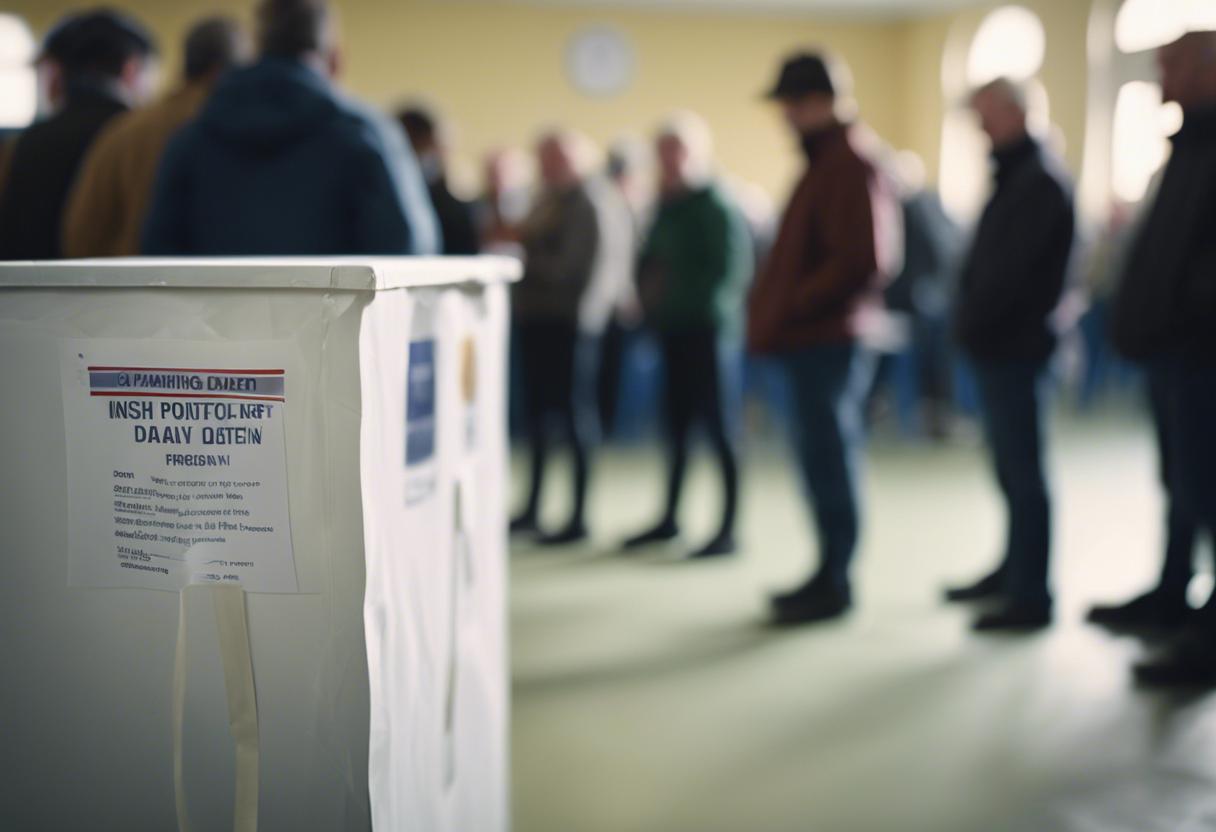1. Addressing Climate Change Issues
This week saw the Climate Change Advisory Council release its yearly review, cautioning the Government that the current pace of reduction in carbon emissions – whilst mostly advantageous compared to past trends – won’t be adequate to attain the emissions reduction objectives by 2030. Despite notable advancements within the year, Ireland still lags considerably in achieving the necessary figures that would fulfil our legally binding EU and national quotas.
Your initial reaction might be, “So what?” Yet another gloomy environment-related report; another set of warnings that can be easily dismissed. Although with politicians eagerly aiming for leadership – though it’s not everyone’s cup of tea – it becomes crucial to tackle these topics not merely as future environmental concerns but as immediate fiscal issues. The climate council has estimated that Ireland could be liable for penalties exceeding €8 billion if the current trend persists. This would be financially calamitous for the succeeding government, forcing them to allocate funds to pay the penalties instead of enhancing services, developing infrastructure or lowering taxes.
One doesn’t need to be a political savvy to understand the intelligence behind spending billions on trimming down carbon emissions to avoid paying billions in fines for failing to do so.
Additionally, proactive long-term planning is required to combat the inevitable impact of climate change. Such planning calls for investments in safeguards against flooding, management of water resources, and the ability to withstand severe weather incidents that experts predict will become increasingly common.
A warning regarding the potential breakdown of ocean currents in the Atlantic, which help moderate Ireland’s climate, was cited in an open letter published last weekend by 44 specialists from 15 different nations. Indications suggest that these currents are decelerating, a change induced by the melting of the Greenland ice cap. Scientists are concerned that this system may be on the brink of total collapse. In an unexpected twist, this could drastically cool Ireland’s climate. Although there is nothing that Ireland can individually do to prevent this, preparation is crucial.
Thus, it is critical for governments to act promptly, albeit the optimal time for so doing was two decades ago. The failure to respond now would be an unpardonable error. This climate issue should absolutely be a topic during the electoral period.
Immigration is another contentious issue causing unease, and it must be addressed during the electoral debate. In fact, immigration is stirring up politics across Europe, stoking the growth of extreme right-wing parties like Germany’s Alternative for Germany (AfD) and the Freedom Party in Austria. Last week’s EU summit saw leaders largely focusing on the immigration issue, with proposals for tighter border security, expedited expulsion of unsuccessful asylum seekers, and countering “hybrid warfare” from antagonistic nations encouraging migrant flow to unsettle EU countries.
Elected officials across the EU, driven by voter sentiment, are taking a firmer stance on immigration. Leaders like Italy’s Prime Minister Giorgia Meloni are elected on the promise of curtailing migration, while others fear being superseded by someone prepared to do so should they not reduce migration. There’s a strong undercurrent of unease among European voters about the scale of immigration into their countries. Undeniably, this fact cannot be ignored.
Discussions about migration frequently focus on accommodating asylum seekers and refugees. However, asylum seekers represent only a portion of total migration, which also includes legal workers, immigrants from EU countries who don’t need work permits (similar to how the Irish don’t need work permits elsewhere in the EU), and individuals born in England but of Irish descent. A balanced immigration and asylum policy must be compassionate, reliable, publicly supported, and maintain Ireland’s global receptiveness sustainably. While migrants are necessary for Ireland, an unlimited influx is unmanageable, as it is everywhere else. Numerous surveys corroborate the public sentiment towards immigration, and it would be imprudent to disregard this.
The impressive progress of the Irish economy over the preceding ten years should not obscure its potential fragilities. It’s unsettling how both government officials and the general public seem complacent, propelled by years of substantial corporate tax income that has permitted substantial public spending plans in the run-up to the elections. The elections may quickly devolve into an extravagant bidding war, assuming that finances would not be a hindrance – an incredibly perilous assumption.
Looking at the administration’s approach, they’ve wisely put significant portions of surpluses into long-term savings and investment funds, with another €4 billion invested this week. Insufficient consideration, however, has been given to maintaining the economic forces that keep Ireland’s economy vigorous. What are the prerequisites? Multinationals yearn for infrastructural investment. The universities, crucial in delivering a well-educated workforce, are facing dire financial straits. The expense of conducting business has reached unprecedented levels. The list is extensive.
There’s no question that Ireland has enjoyed good fortune. However, to borrow from golfer Gary Player’s words, the more I practise, the luckier I get. Preserving the wealth that allows the government to distribute resources for societal improvement should be of supreme importance in this and all future elections.

